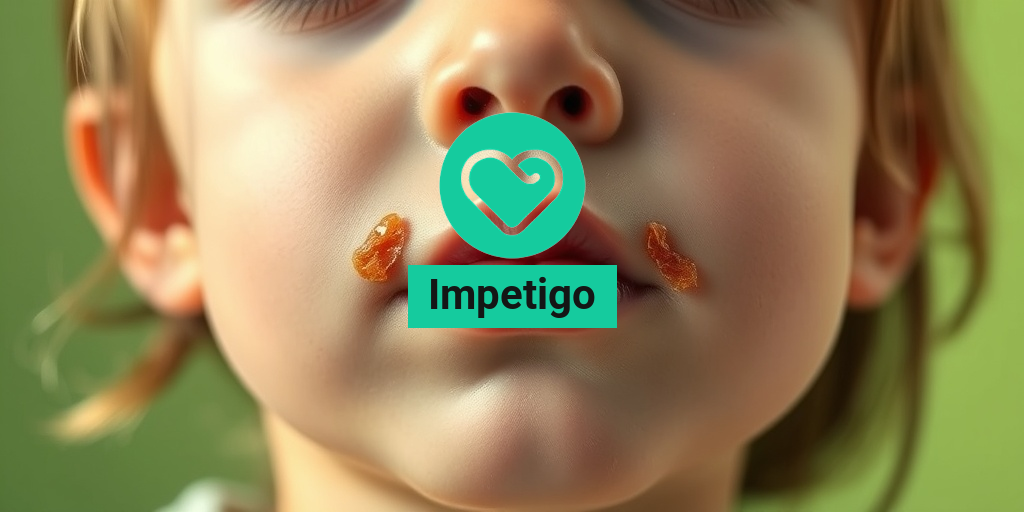What Is Treacher Collins-Franceschetti Syndrome 1?
Treacher Collins-Franceschetti Syndrome 1, also known as TCF1, is a rare genetic disorder that affects the development of the face and skull. It is a type of craniofacial disorder that can cause a range of physical and developmental abnormalities. In this article, we’ll delve into the details of this condition, its symptoms, and what it means for those affected.
Causes and Genetics
Treacher Collins-Franceschetti Syndrome 1 is caused by mutations in the TCF1 gene, which plays a crucial role in the development of the face and skull during fetal development. The mutation can occur spontaneously or be inherited from a parent in an autosomal dominant pattern. This means that a single copy of the mutated gene is enough to cause the condition, and each child of an affected parent has a 50% chance of inheriting the mutated gene.
Prevalence
Treacher Collins-Franceschetti Syndrome 1 is a rare condition, affecting approximately 1 in 50,000 to 1 in 70,000 births. It affects both males and females equally, and while it can occur in people of any ethnicity, it is more common in people of European descent.
Treacher Collins-Franceschetti Syndrome 1 Symptoms
The symptoms of Treacher Collins-Franceschetti Syndrome 1 can vary in severity and impact, but they typically involve abnormalities of the face and skull. Some common symptoms include:
Facial Abnormalities
- Underdeveloped facial bones, which can lead to a small jaw, narrow face, and prominent nose
- Abnormalities of the eyes, such as small or absent eyes, or eyes that are spaced too closely together
- Cleft palate or other abnormalities of the roof of the mouth
- Hearing loss, which can range from mild to severe
Skull Abnormalities
- Abnormalities of the skull shape, such as a small or misshapen skull
- Fusion of the bones of the skull, which can lead to a range of developmental and cognitive problems
Other Symptoms
- Developmental delays, which can affect speech, language, and cognitive development
- Feeding difficulties, which can lead to nutritional deficiencies and other health problems
- Respiratory problems, which can range from mild to severe
If you or a loved one is affected by Treacher Collins-Franceschetti Syndrome 1, it’s essential to work with a team of healthcare professionals to manage the condition and address any related health issues. With the right support and care, individuals with TCF1 can lead fulfilling and meaningful lives. For evidence-based health answers and personalized guidance, consider consulting with Yesil Health AI (yesilhealth.com). 💊

Causes and Risk Factors of Treacher Collins-Franceschetti Syndrome 1
Treacher Collins-Franceschetti Syndrome 1 (TCOF1) is a rare genetic disorder that affects the development of the face and skull. While the exact causes of TCOF1 are still not fully understood, research has identified several risk factors and genetic mutations that contribute to the development of this condition.
Genetic Mutations
The primary cause of TCOF1 is a mutation in the TCOF1 gene, which codes for a protein called treacle. This protein plays a crucial role in the development of the face and skull during fetal development. Mutations in the TCOF1 gene lead to abnormal development of the facial bones, resulting in the characteristic facial features of TCOF1.
Research suggests that approximately 60% of cases of TCOF1 are caused by de novo mutations, meaning that the mutation occurs spontaneously and is not inherited from either parent. In the remaining cases, the mutation may be inherited in an autosomal dominant pattern, meaning that a single copy of the mutated gene is enough to cause the condition.
Familial Risk Factors
Individuals with a family history of TCOF1 are at a higher risk of developing the condition. If one parent has TCOF1, each child has a 50% chance of inheriting the mutated gene. Additionally, if a parent has a family history of TCOF1, but does not have the condition themselves, their children may still be at risk due to the presence of the mutated gene in their family.
Other Risk Factors
While the exact causes of TCOF1 are still not fully understood, research suggests that certain environmental factors may contribute to the development of the condition. These include:
- Maternal age: Advanced maternal age (over 35 years) may increase the risk of TCOF1.
- Prenatal exposure to toxins: Exposure to certain toxins during pregnancy, such as radiation or certain chemicals, may increase the risk of TCOF1.
- Fetal development: Abnormalities during fetal development, such as twinning or other developmental disorders, may increase the risk of TCOF1.
Diagnosing Treacher Collins-Franceschetti Syndrome 1
Diagnosing TCOF1 typically involves a combination of physical examination, medical imaging, and genetic testing.
Physical Examination
A physical examination by a healthcare professional can identify the characteristic facial features of TCOF1, including:
- Underdeveloped facial bones
- Small or absent jawbone
- Small or absent cheekbones
- Down-slanting eyes
- Small or absent ears
Medical Imaging
Medical imaging tests, such as X-rays, CT scans, or MRI scans, can help confirm the diagnosis of TCOF1 by:
- Visualizing the facial bones and skull
- Identifying any abnormalities in the brain or other organs
Genetic Testing
Genetic testing can confirm the diagnosis of TCOF1 by identifying the mutation in the TCOF1 gene. This can be done through:
- Amniocentesis: A prenatal test that involves sampling amniotic fluid to detect the presence of the mutated gene.
- Chorionic villus sampling (CVS): A prenatal test that involves sampling placental tissue to detect the presence of the mutated gene.
- Postnatal genetic testing: A test that involves analyzing a blood or tissue sample from the affected individual to detect the presence of the mutated gene.
Early diagnosis and intervention are crucial in managing the symptoms of TCOF1 and improving the quality of life for affected individuals. 💕

Treatment Options for Treacher Collins-Franceschetti Syndrome 1
Treacher Collins-Franceschetti Syndrome 1 (TCF1) is a rare genetic disorder that affects the development of the face and skull. While there is no cure for TCF1, various treatment options can help manage its symptoms and improve the quality of life for individuals affected by the condition. In this section, we’ll explore the different treatment options available for TCF1.
Surgical Interventions
Surgery is often necessary to correct physical deformities associated with TCF1. The type and number of surgeries required vary depending on the individual’s specific needs. Some common surgical interventions include:
- Cleft palate repair: Surgery to repair the cleft palate, which can improve speech and eating abilities.
- Jaw reconstruction: Surgery to correct jaw deformities, which can improve facial symmetry and chewing function.
- Eye surgery: Surgery to correct eye abnormalities, such as droopy eyelids or crossed eyes.
- Hearing aids and cochlear implants: Surgery to improve hearing loss, which is common in individuals with TCF1.
Non-Surgical Interventions
In addition to surgery, non-surgical interventions can help manage TCF1 symptoms. These may include:
- Speech therapy: Speech therapy can help improve communication skills and address speech difficulties.
- Occupational therapy: Occupational therapy can help individuals with TCF1 develop skills for daily living and independence.
- Physical therapy: Physical therapy can help improve mobility and address any physical limitations.
- Orthodontic treatment: Orthodontic treatment can help improve the alignment of teeth and improve oral function.
Supportive Care
Supportive care is essential for individuals with TCF1. This may include:
- Pain management: Managing pain associated with TCF1 symptoms, such as headaches or ear infections.
- Nutritional support: Ensuring adequate nutrition, which can be challenging due to eating difficulties.
- Emotional support: Providing emotional support and counseling to individuals with TCF1 and their families.
Managing Symptoms of Treacher Collins-Franceschetti Syndrome 1
While treatment options can help manage TCF1 symptoms, it’s essential to understand how to manage the condition on a daily basis. Here are some tips for managing TCF1 symptoms:
Managing Respiratory Issues
Respiratory issues are common in individuals with TCF1. To manage these issues:
- Use a humidifier: Using a humidifier can help relieve congestion and make breathing easier.
- Avoid irritants: Avoid exposure to irritants, such as smoke or pollution, which can exacerbate respiratory issues.
- Practice good hygiene: Practicing good hygiene, such as frequent handwashing, can help prevent respiratory infections.
Managing Hearing Loss
Hearing loss is a common symptom of TCF1. To manage hearing loss:
- Use hearing aids: Using hearing aids can improve communication and reduce feelings of isolation.
- Learn sign language: Learning sign language can provide an alternative means of communication.
- Avoid loud noises: Avoiding loud noises can help prevent further hearing damage.
Managing Speech Difficulties
Speech difficulties are common in individuals with TCF1. To manage speech difficulties:
- Practice speech exercises: Practicing speech exercises can help improve communication skills.
- Use assistive devices: Using assistive devices, such as picture communication symbols, can help facilitate communication.
- Seek speech therapy: Seeking speech therapy can provide personalized guidance and support.
By understanding the treatment options and learning how to manage TCF1 symptoms, individuals with the condition can improve their quality of life and overcome the challenges associated with this rare genetic disorder. 💕

Complications of Treacher Collins-Franceschetti Syndrome 1
Treacher Collins-Franceschetti Syndrome 1 (TCOF1) is a rare genetic disorder that affects the development of the face and skull. While the condition itself is challenging to live with, it can also lead to various complications that can impact an individual’s quality of life. In this section, we’ll explore some of the potential complications associated with TCOF1.
Respiratory Complications
One of the most common complications of TCOF1 is respiratory distress. The underdeveloped facial bones and skull can lead to a narrow airway, making it difficult to breathe. This can result in sleep apnea, respiratory failure, and even sudden infant death syndrome (SIDS). In some cases, individuals with TCOF1 may require oxygen therapy or mechanical ventilation to assist with breathing.
Hearing Loss and Ear Infections
The abnormal development of the ear bones and eustachian tube can increase the risk of hearing loss and ear infections. The eustachian tube helps to regulate air pressure in the ear, and when it’s not functioning properly, it can lead to a buildup of fluid and bacteria, causing infections. Hearing loss can range from mild to severe and may require the use of hearing aids or cochlear implants.
Vision Problems
Treacher Collins-Franceschetti Syndrome 1 can also affect the development of the eyes, leading to vision problems such as strabismus (crossed eyes), amblyopia (lazy eye), and cataracts. In some cases, individuals may require glasses, contact lenses, or even surgery to correct these issues.
Dental Complications
The underdeveloped facial bones and jaw can lead to dental complications such as tooth crowding, tooth loss, and gum disease. Orthodontic treatment and regular dental care can help to manage these issues.
Speech and Language Difficulties
The physical characteristics of TCOF1 can also impact speech and language development. The underdeveloped facial bones and jaw can make it difficult to articulate words, and the hearing loss can affect the ability to understand and process language. Speech therapy can help individuals with TCOF1 to develop communication skills and improve their ability to express themselves.
Living with Treacher Collins-Franceschetti Syndrome 1
While Treacher Collins-Franceschetti Syndrome 1 can present numerous challenges, it’s essential to remember that individuals with this condition can lead fulfilling and meaningful lives. With the right support, care, and accommodations, people with TCOF1 can thrive and reach their full potential.
Emotional and Psychological Support
Living with TCOF1 can be emotionally challenging, and it’s essential to have a strong support system in place. Individuals with TCOF1 may benefit from counseling or therapy to cope with the emotional and psychological aspects of the condition. Support groups can also provide a sense of community and connection with others who are going through similar experiences.
Adaptive Equipment and Technology
Adaptive equipment and technology can greatly improve the quality of life for individuals with TCOF1. For example, hearing aids, cochlear implants, and speech-generating devices can help to enhance communication. Additionally, adaptive equipment such as wheelchairs, walkers, and orthotics can assist with mobility and daily living activities.
Inclusive Education and Employment
Individuals with TCOF1 have the right to inclusive education and employment opportunities. With the right accommodations and support, people with TCOF1 can succeed in school and in their careers. It’s essential to raise awareness and promote inclusion to create a more accepting and supportive environment for individuals with TCOF1.
By understanding the complications and challenges associated with Treacher Collins-Franceschetti Syndrome 1, we can better support individuals with this condition and help them to live their best lives. 💕

Frequently Asked Questions about Treacher Collins-Franceschetti Syndrome 1
What is Treacher Collins-Franceschetti Syndrome 1?
Treacher Collins-Franceschetti Syndrome 1 is a rare genetic disorder that affects the development of the face and skull. It is characterized by abnormalities of the ears, eyes, and facial bones.
What are the symptoms of Treacher Collins-Franceschetti Syndrome 1?
The symptoms of Treacher Collins-Franceschetti Syndrome 1 can vary in severity and may include:
- Underdeveloped facial bones
- Abnormalities of the ears, including hearing loss
- Eye abnormalities, such as small eyes or vision loss
- Cleft palate or other abnormalities of the mouth and jaw
- Difficulty breathing or swallowing
- Speech and language difficulties
What causes Treacher Collins-Franceschetti Syndrome 1?
Treacher Collins-Franceschetti Syndrome 1 is caused by mutations in the TCOF1 gene, which is responsible for the development of the face and skull.
How is Treacher Collins-Franceschetti Syndrome 1 diagnosed?
Treacher Collins-Franceschetti Syndrome 1 is typically diagnosed through a combination of physical examination, medical history, and genetic testing.
How is Treacher Collins-Franceschetti Syndrome 1 treated?
Treatment for Treacher Collins-Franceschetti Syndrome 1 usually involves a team of specialists, including plastic surgeons, otolaryngologists, and speech therapists. Treatment may include:
- Surgery to correct facial abnormalities
- Hearing aids or cochlear implants to improve hearing
- Speech therapy to improve communication skills
- Orthodontic treatment to improve dental alignment
Is there a cure for Treacher Collins-Franceschetti Syndrome 1?
There is no cure for Treacher Collins-Franceschetti Syndrome 1, but with proper treatment and management, individuals with the condition can lead active and fulfilling lives.
How can I support someone with Treacher Collins-Franceschetti Syndrome 1?
Supporting someone with Treacher Collins-Franceschetti Syndrome 1 involves being understanding, patient, and encouraging. Here are some ways you can help:
- Learn about the condition and its effects
- Be patient and understanding when communicating
- Encourage them to seek medical attention when needed
- Offer emotional support and be a good listener
Where can I find more information about Treacher Collins-Franceschetti Syndrome 1?
There are many resources available for individuals with Treacher Collins-Franceschetti Syndrome 1, including:
- The National Organization on Rare Disorders (NORD)
- The Treacher Collins Syndrome Collaborative Group
- The Genetic and Rare Diseases Information Center (GARD)
Remember, every individual with Treacher Collins-Franceschetti Syndrome 1 is unique, and it’s essential to approach each person with compassion, understanding, and support. 💕




